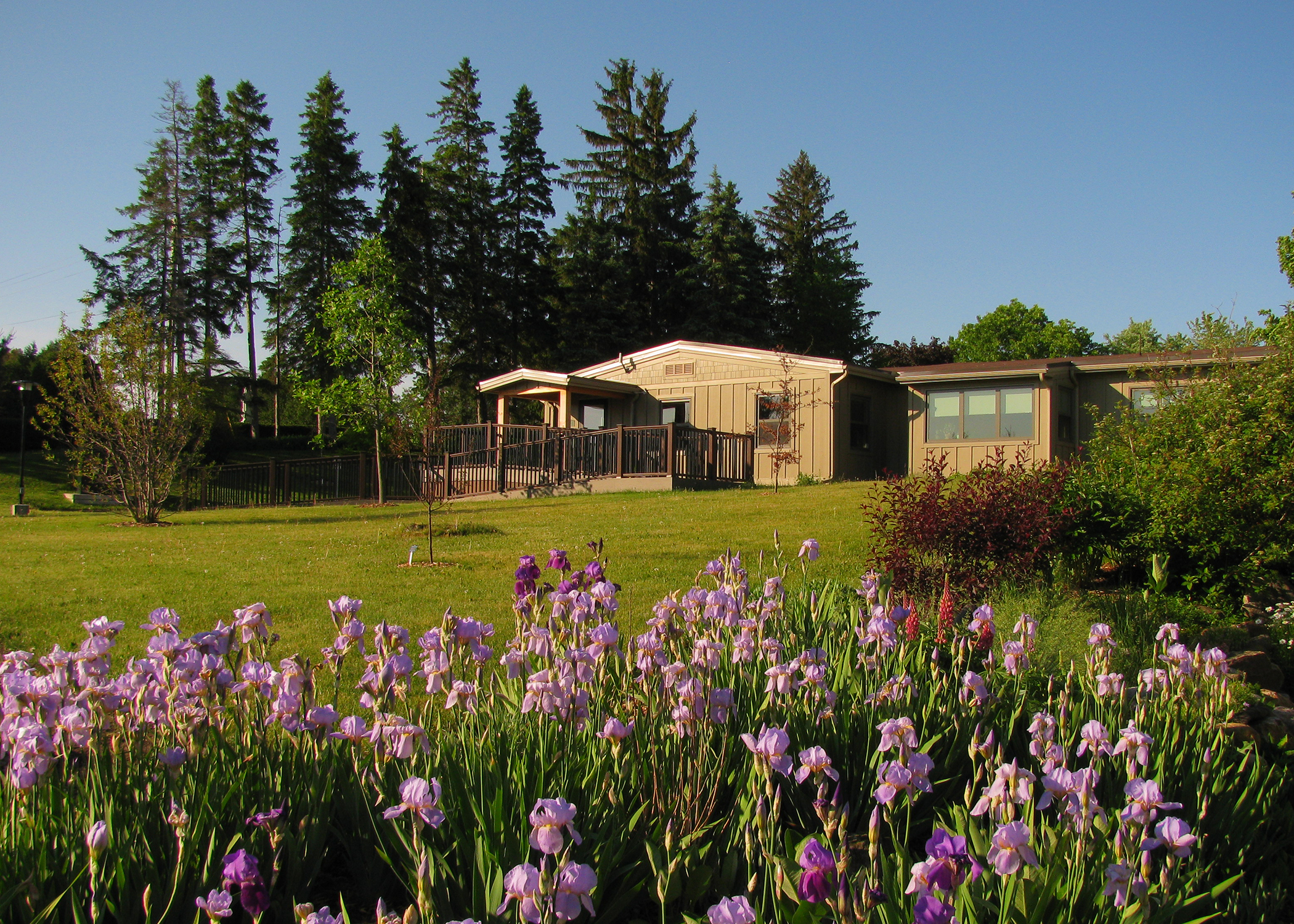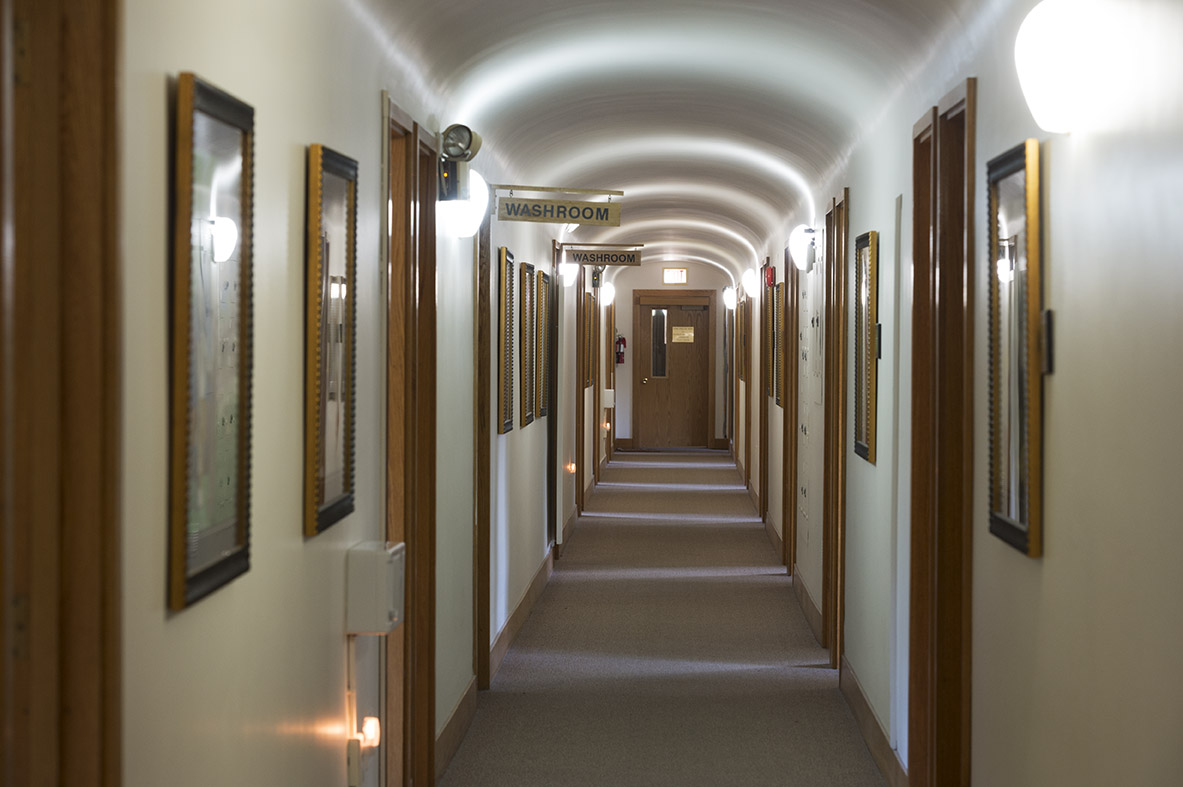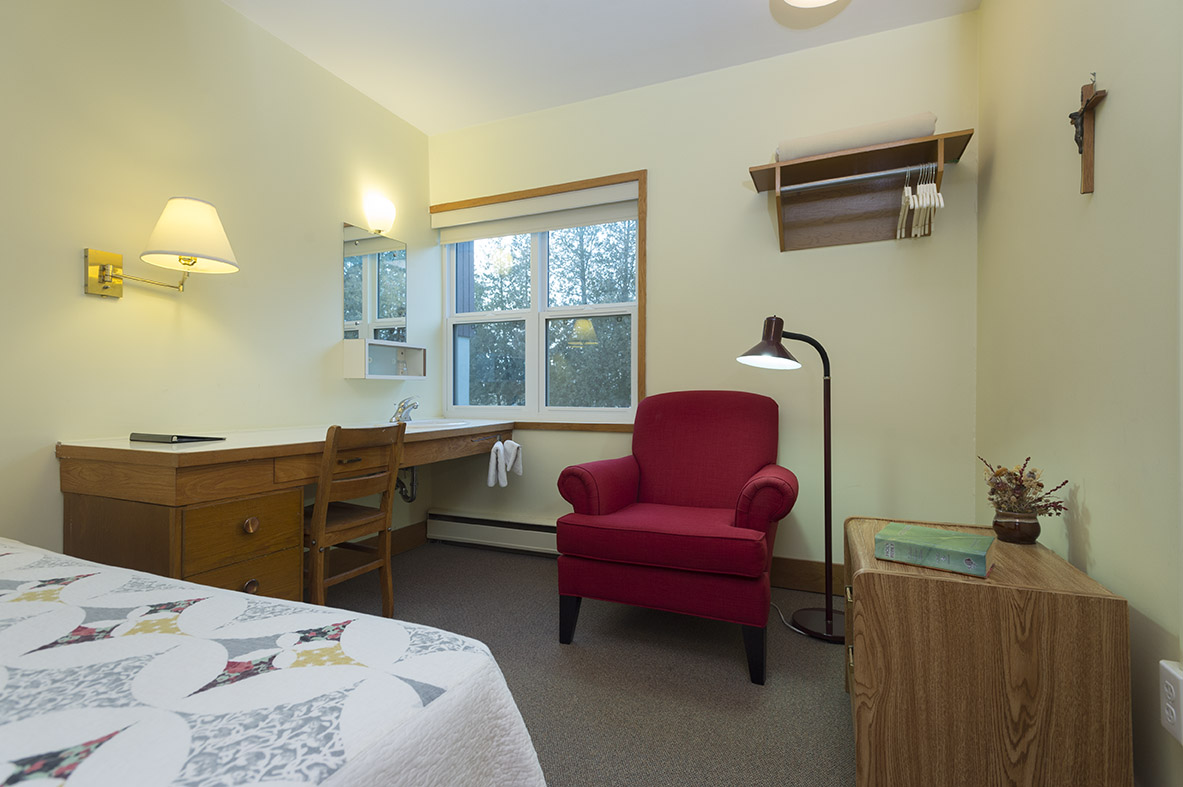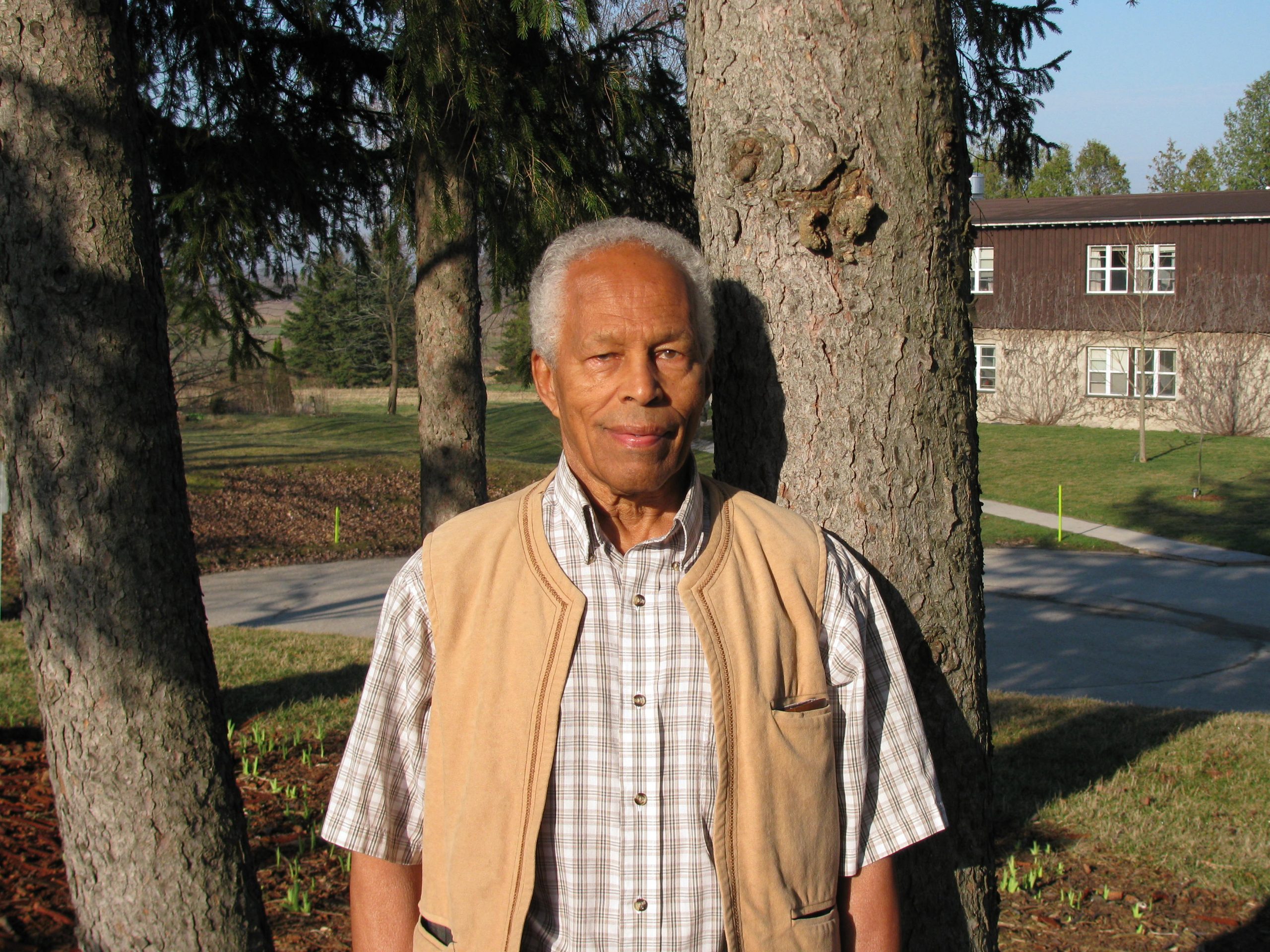“Being a part of this has been one of the most grace-filled experiences I had in the last several months,” said Lisa Calzonetti, Ignatius Jesuit Centre’s Director of Operations about the new vocation of the Loyola House Retreat & Training Centre in Guelph.
Although much of the centre remained shut down due to the COVID-19 pandemic, things changed. Homeless persons who are tested for the virus, waiting for results, or who become positive for COVID-19 needed a place to stay. So, Loyola House became an Isolation Centre. Some of them (referred by Guelph General Hospital or the COVID-19 assessment centre) now have many of their current most essential needs covered, such as a private room, food and personal hygiene, among others. And after 14 days at the facilities, the team connects them with resources to stay safe even after the pandemic.
Ms. Calzonetti shared how this project came to life and how it changes Loyola House.
Our relationship with these people has increased, and because that is increased our mission has resonated more strongly to the community, which is really important to us and to the Jesuits. And I can see this carrying on to some point.
Why did you open Loyola House to homeless persons?
Over the years I’ve always thought of Loyola House as a simple retreat house – single beds, shared bathrooms, etc. – the usual for a retreat house such as ours.
When we closed Loyola House on March 13th as a result of COVID-19, I began to see the House in a different light. It was this beautiful 48-room retreat house, artwork on the walls, sunlight streaming in every room; I could walk through the house out of silence, noticing parts of the House I hadn’t seen in some time.
But 48 rooms?! As a Jesuit House I wondered how we would justify all these empty rooms….especially now that we’re closed to the public until August. So over those first couple of weeks that we have been closed, we thought about what we would do with all this space that seemed almost extravagant in my mind.
Then, the executive director of the local Drop-In centre, a good friend of mine, asked if we would be interested in partnering with some of the service agencies in the county and immediately – we didn’t hesitate – we said yes, right away. And we looked for logistics after the fact. Because it was a natural choice for the Jesuits and a natural choice for me.
It resonates clearly with the Universal Apostolic Preferences, walking with the poor. There was no question that we were going to help. It was just how we will gonna help.
The logistics is always a minor part. After two weeks of logistical hoops, collaborating with the Drop-In Centre, Wellington County Social Services and Public Health, we were set up to accept those who must self-isolate for 14 days. We opened for them on April 16.
Each room has its own bed, window and sinks to limit the risks of transmission. The centres are bringing in their own staff – nurses, shelter workers, etc. We were quite clear that because we don’t have the experience, we wanted to be sure that we are safe and that the clients have the care that they need.
Any moments you would highlight?
We used to have a farm community here. It was started in the early 80′ and was around for almost 20 years. And one of our oldest Jesuits, Fr. Bill Clark, was instrumental in starting this farm community. It was an ability for the marginalized to be able to live and work on a farm setting and it was an Ignatian setting.
Just a couple of days after the shelter opened, one man said, “Hey Bill, it’s Wayne.” And Bill said, “Wayne, how are you?” And Wayne said, “Well I am just downstairs.” (Bill’s office is on the second floor.) Wayne is one of the people who came here to be in the centre. So that was kind of amazing. Bill hasn’t seen this man for a long time. Wayne started here as a young man in the farm community, and he went off and obviously still has a lot of challenges in his life, and he became homeless, and is now here.
Bill and Wayne started a relationship again. Bill told me: “I have a new spiritual director.” I said: “you are his new spiritual director?” He corrected me: “no, no, no, Wayne is my new spiritual director.” That is just so Bill, he believes that everyone he knows touches him in some way and teaches him in some way.
How are things going?
We had a few police cars here, but we are in no illusion, we partnered with a section of the population that has challenges, and we are rolling with that. We don’t jump out when a police car is coming because we know it’s a standard procedure. Apparently for example, one of the clients threw his coffee all around the bedroom: that is an unacceptable situation when you are in a group setting like that, so they had to call the police to take him away for the night. But it’s just some coffee on the walls and it’s easy to clean. We were under no illusion that the house would be gently used, but we know the group we partnered with will clean. That is a small price to pay and it’s incidental to the bigger picture.




